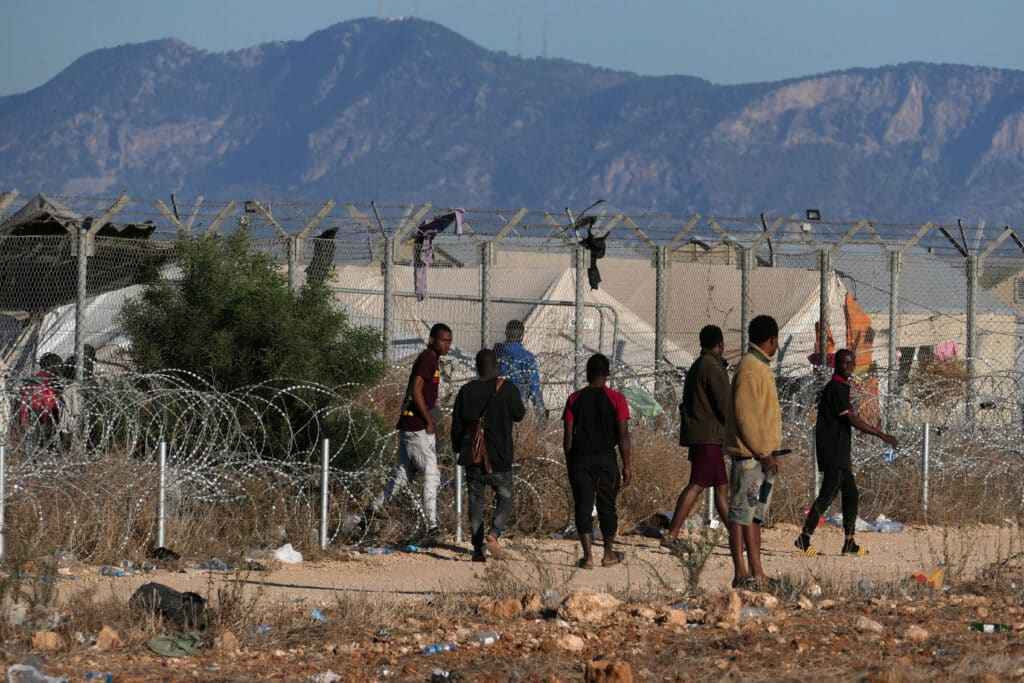Interior Minister Constantinos Ioannou informed the House interior committee of his plans to create a Deputy Ministry of Migration and Asylum on Thursday.
He said the creation of such a deputy ministry would allow the government to “implement an integrated and coordinated strategy in terms of immigration management”.
The main aims of the creation of the deputy ministry would be, he said, the prevention of irregular flows of people and the fight against networks of people smugglers.
It was also to oversee “the further acceleration of the evaluation of asylum applications, the improvement of conditions in reception and hospitality centres, and the promotion of a policy for unaccompanied minors”.
He went on to say that the proposed deputy ministry “will have substantial and practical benefits in the management of the great problem of immigration. The bringing of these services under one roof will have multiple benefits in terms of planning, coordination and the supervision of the relevant departments”.
Delving into specifics, he said the ministry’s asylum service and the immigration department would be fully transferred to the deputy ministry.
He said the police’s asylum and immigration service could not be brought under the deputy ministry’s umbrella due to constitutional provisions, but that a memorandum of cooperation will be signed with the police regarding the service.
In addition, he said the deputy minister of migration and asylum would be able to represent Cyprus at the European Union and at other international organisations on the relevant occasions.
Akel MP Aristos Damianou expressed “reservations” regarding the legality of the responsibilities of deputy ministers and said opinions will be sought from the legal service on whether the appointments and roles of deputy ministers is constitutional.
He also decried the “absence of a comprehensive policy” dealing with the reception process, evaluation of applications, and legal returns process of those who are not entitled to remain.
Disy MP Nikos Sykas said his party “agrees with the implementation of the long-term effort that has been made” for the creation of a deputy ministry, but said there are “several issues that need to be discussed and clarified”.
Edek MP and party leader Marinos Sizopoulos welcomed the bill, saying the establishment of the deputy ministry “will be an important factor in the best possible and fastest management of an important problem which not only impacts our country, but also others in the Mediterranean.”
Dipa MP Marinos Mousiouttas said his party “has some objections and misgivings regarding the issue of the police”.
“We are open to listen and this will be done in further discussion and with the opinion of the legal service. However, I believe that from the point of view of productivity it would be better if the police were subordinated into the deputy ministry,” he added.
Meanwhile, a representative of the refugees commission said the “adequacy of staff should be ensured and the issues of competence of the deputy minister should be clear”.
She pointed potential issues regarding issues of competence with the education ministry concerning integration programmes for children of asylum seekers and refugees, asking how such issues would be managed.
Ioannou said a memorandum of cooperation would be signed between the education ministry and the deputy ministry of migration and asylum.
A representative of trade union Pasydy spoke of the need to staff the new deputy ministry with permanent and specialised staff, pointing out that the asylum service is currently staffed by people with fixed-term contracts.
He added that he “does not consider it right to weaken a service for the purpose of creating a deputy ministry”.
Isotita union chairman Nikos Loizides spoke of “ambiguities and gaps” in the bill to create the deputy ministry, saying they would lead to staffing issues.
On the other hand, he expressed “satisfaction” with the value placed on the police’s permanent presence at the deputy ministry by MPs.
Doros Polykarpou spoke on behalf of the Anti-racism equality movement (Kisa) and said “the effort to create a mechanism for better immigration management is welcome.”
However, he pointed out that “no study, financial or academic, was conducted on whether the deputy ministry would be able to function,” and criticised the lack of “sufficient time” given for the idea to be debated.
The meeting comes a day after it was announced that Cyprus ranks number one in the European Union in terms of the number of returns and deportation of rejected asylum seekers.
At present, 97 per cent of irregular migrants on new asylum applications are returned from Cyprus in the period March-September 2023.
At the same time, Cyprus ranks fourth among the 27 member states of the European Union in absolute numbers of returns and expulsions of irregular migrants, according to data for the second quarter of 2023 published by Eurostat.
A total of 1,775 returns of irregular migrants were made, mainly to countries in Sub-Saharan Africa (Nigeria, Congo, Cameroon), countries that Cyprus has targeted with specific measures and an information campaign.
Ioannou had first announced his intention to create a new deputy ministry of migration and asylum back in July, with cabinet approving the proposal in the same month.







Click here to change your cookie preferences